 W
WThe culture of Taiwan is a blend of Confucian Chinese and indigenous Taiwanese cultures. Despite the overwhelming traditional Chinese influence, Japanese have influenced Taiwanese culture as well. The common socio-political experience in Taiwan gradually developed into a sense of Taiwanese cultural identity and a feeling of Taiwanese cultural awareness, which has been widely debated domestically.
 W
WThe Amis Music Festival is a cultural event held in Dulan Village, Taitung County. The event promotes music, arts and various cultures of the Taiwanese indigenous peoples, and is the first of its kind in Taiwan.
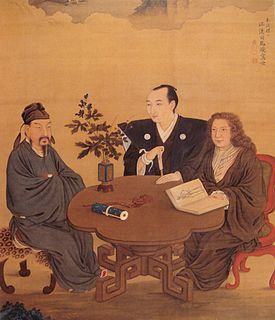 W
WAng mo, or ang moh, is a racial descriptor used to refer to white people that is sometimes seen as a pejorative epithet. It is mainly used in Singapore and Taiwan, and to a lesser extent Malaysia and Thailand. It literally means "red-haired" and originates from Hokkien, a variety of Southern Min. The usage is similar to the Cantonese term gweilo, which is more commonly used in Hong Kong and Macau.
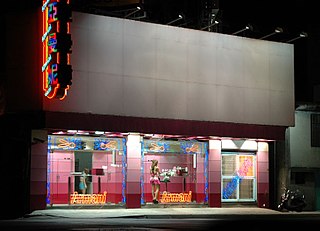 W
WIn Taiwan, a betel nut beauty or binlang girl is a young woman selling betel nuts and cigarettes from a brightly lit glass enclosure while wearing revealing clothing. The term in Chinese comes from Xi Shi, the legendary beauty of imperial China's Spring and Autumn period. Though betel nuts are chewed in many regions in Southeast Asia, the betel nut beauty phenomenon is distinctly Taiwanese.
 W
WThe Bible translations into the languages of Taiwan are into Taiwanese, Hakka, Amis, and other languages of Taiwan.
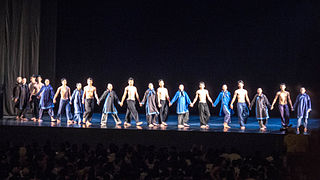 W
WCloud Gate Dance Theater is a modern dance group based in Taiwan, the first of its kind in Taiwan and Asia. It was founded by choreographer Lin Hwai-min in 1973, and later he shared its management with his late protégé, choreographer Lo Man-fei. The troupe was inactive from October 1988 to September 1990. During this time, Lin spent time abroad in India and Indonesia, and studied at New York University.
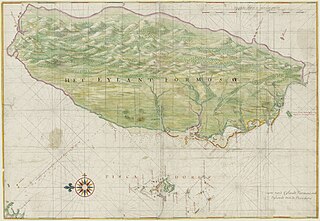 W
WThe cultural history of Taiwan can be traced back to prehistoric Stone Age. Later the development of written languages made it easier to maintain traditions of the Taiwanese culture.
 W
WThe Eight Views of Taiwan have been talked about at different times in Taiwan's history.
 W
WElectric-Techno Neon Gods, sam thai tsu, or Techno Prince Nezha is a subcultural dance performance which combines a traditional Taiwan folk dance performance with modern pop music.
 W
WGambling in Taiwan is prohibited by the Criminal Code of the Republic of China. State-run lotteries, like the Uniform Invoice lottery, are the only legal form of gambling on mainland Taiwan. The construction of casinos on some off-shore islands was legalized in 2009, though to date none have been built. Some gambling-style games are allowed either on special days or under special restricted circumstances.
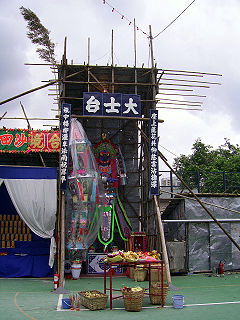 W
WThe Ghost Festival, also known as the Hungry Ghost Festival, Zhongyuan Jie (中元節), Gui Jie (鬼節) or Yulan Festival is a traditional Buddhist and Taoist festival held in certain East Asian countries. According to the Chinese calendar, the Ghost Festival is on the 15th night of the seventh month.
 W
WGlove puppetry is a type of opera using cloth puppets that originated during the 17th century in Quanzhou or Zhangzhou of China's Fujian province, and historically practised in the Min Nan-speaking areas such as Quanzhou, Zhangzhou, the Chaoshan region of Guangdong, and other parts of southern China. It had since established itself contemporarily as a popular art form in Taiwan.
 W
WThe Hsu-nami is an American progressive rock band from the United States. The Hsu-nami, named after the frontman Jack Hsu, became known as the first "Progressive Erhu Rock" band in the world.
 W
WA karaoke box is a type of karaoke establishment commonly found in East Asia, Southeast Asia, South Asia, the United States and Canada. It originated in Japan, and is now popular worldwide, particularly in Asia. Karaoke boxes consist of multiple rooms containing karaoke equipment, usually rented out for a period of time. A typical karaoke box establishment contains 10–20 such rooms, that can be themed so that each room has a different feeling or can be a traditional karaoke box, as well as have a main karaoke bar area in the front. Karaoke box establishments often sell beverages, and sometimes food but sometimes the establishment offers free refreshments. Many people of all ages enjoy karaoke as a pastime in Japan, as it still has a huge influence in the Japanese music scene and it is also a place that can attract tourists as well. One blogger, who is a fan of karaoke, writes "...to sing karaoke is to embrace the moment that your love of song transcends your love of self." While people do go to and enjoy karaoke boxes with family and friends, people also go by themselves and are able to enjoy the comfort of performing in the room by themselves. There is also a different style of karaoke, the traditional type where the patrons sing in front of everyone that is also still offered in popular entertainment areas, rather than the private boxes.
 W
WKuai Kuai culture is a phenomenon in Taiwan wherein workers put snacks of the brand Kuai Kuai (乖乖) next to or on top of machines. Workers who do this believe that, because the name of the snack - "Kuai Kuai" - stands for "obedient" or "well-behaved," it will make a device function without errors. As such, it can be commonly found in myriad places of work in Taiwanese society. A rigid set of best practices has arisen surrounding the proper use of Kuai Kuai snacks, such as using green bags only, and ensuring the snacks are not expired.
 W
WThe Republic of China calendar or Minguo calendar is one of the calendars used in the Greater China area. The calendar uses 1912, the year of the establishment of the Republic of China (ROC), as the first year. The term "minguo" simply means "republic". The ROC calendar follows the tradition of using the sovereign's era name and year of reign, as did previous Chinese dynasties. Months and days are numbered according to the Gregorian calendar. The ROC calendar has been in wide use in the ROC since 1912, including in early official documents.
 W
WNight markets or night bazaars are street markets which operate at night and are generally dedicated to more leisurely strolling, shopping, and eating than more businesslike day markets. They are typically open-air markets.
 W
WPas-ta'ai, the “Ritual to the Short People”, is a ritual of the Saisiyat people, a Taiwanese aboriginal group. The ritual commemorates the Ta'ai, a tribe of short dark-skinned people they say used to live near them. The ritual is held every two years and all Saisiyat are expected to participate.
 W
WPhilosophy in Taiwan is the set of philosophical and thought movements in Taiwan, while Taiwanese Philosophy approaches Taiwan as a subject of philosophical significance. For instance, the postwar concurrence with Neo-Confucianism canonized the Chinese Philosophy in Taiwan, contra the Cultural Revolution in the People's Republic of China, may somehow omit the complexity of Taiwanese Philosophy. With the unearthing literature and sprouting discourses due to the merits of democratization, public debates on whether historical configuration of Taiwanese Philosophy or many faces of Taiwanese philosophers, have unveiled the world intellectualism of Taiwanese Philosophy via Japan in the Golden 1920s and later substituted with the postwar Chinese Confucian Canons. Nevertheless, a reinvigorated formulation on Taiwanese Philosophy that China and Japan at different times imprint as exogenesis; and thus, a burgeoning philosophical development with the Taiwanese Gemeinschaft.
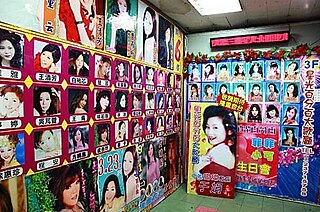 W
WA Red Envelope Club is a form of Cabaret in Taiwan that originated in Taipei in the 1960s as an imitation of Shanghai Cabaret. In these cabarets, female singers sing old Chinese songs from the 1920s to 1950s to mostly older men, many of whom were soldiers in General Chiang Kai-shek's Kuomintang army that fled Mainland China after the Chinese Civil War. The cabarets get their name from the fact that the audience gives the singers, who they appreciate, money in red envelopes. The remaining clubs are mostly located in the Ximending District of Taipei on Hankou Street, Emei Street, and Xining South Road.
 W
WA roadside banquet is a traditional Taiwanese-style banquet. The phrase also refers to a form of catering business. Many well-known Taiwanese dishes originated in roadside banquet culture. Taiwanese people like to hold roadside banquets. Friends and family gather to celebrate important events in life, such as weddings, housewarming parties, newborn’s one month celebration, farewell parties, company year-end parties and religious celebrations. Roadside banquets often take place under huge tents set up beside roads. People also host these banquets at the squares in front of temples, at sports fields in schools or in local community centers. There will be stoves and kitchen counters in the tents, so the food can be cooked on location. Then the participants can enjoy the feast together.
 W
WShen Zhu or God Pig, sometimes known as Holy pig, are pigs that have been chronically fattened for use in Hakka religious and cultural ceremonies, for example, Yimin Festival and the Lunar New Year celebration in Sanxia, northern Taiwan. Pigs are fattened in a process similar to gavage to make them as large as possible in preparation for contests and awards at the festival. The heaviest pig is declared the winner and the owner may receive a prize. The winning pig and other pigs entered into the contest are ritually killed as a sacrifice to a city god or a local deity, a popular one being the deified Buddhist monk Qingshui Zushi.
 W
WA sky lantern, also known as Kǒngmíng lantern, or Chinese lantern, is a small hot air balloon made of paper, with an opening at the bottom where a small fire is suspended.
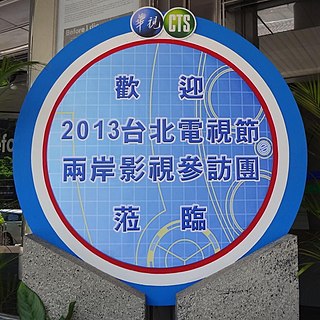 W
WThe Taipei International TV Market & Forum(台北電視節), formerly known as Taipei TV festival (TTF), is a major platform for copyright trading in Asia-made TV programs. It is hosted by the Bureau of Audiovisual and Music Industry Development of the Republic of China. and it has been taking place every year in September since its establishment in 2004.
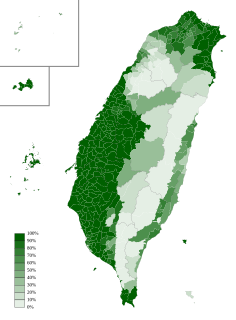 W
WTaiwanese, also known as Taigi,, Taiwanese Minnan, Holo, Taiwanese Hokkien, is a variety of the Hokkien language spoken natively by about 70% of the population of Taiwan. It is spoken by the Taiwanese Hoklo people, who descended from immigrants from southern Fujian during the Qing dynasty. The Pe̍h-ōe-jī (POJ) romanization is a popular orthography for Taiwanese.
 W
WTaiwanese indigenous peoples, also known as the Formosan people, Taiwanese Austronesians, Yuanzhumin or Gāoshān people, are the indigenous peoples of Taiwan, who number almost 569,008 or 2.38% of the island's population. This total is increased to more than 800,000 people if the indigenous peoples of the plains in Taiwan are included, pending future official recognition. Recent research suggests their ancestors may have been living on Taiwan for approximately 5,500 years in relative isolation before contact with Chinese people and mutual immigration thereafter throughout the 17th century.
 W
WTaiwanese Mandarin, or Guoyu, is a variety of Mandarin Chinese and a national language of Taiwan. The core of its standard form is described in the dictionary Guoyu Cidian (國語辭典) maintained by the Ministry of Education of Taiwan. It is based on the phonology of the Beijing dialect together with the grammar of vernacular Chinese.
 W
WTaiwanese opera commonly known as Ke-Tse opera or Hokkien opera, is a form of traditional drama originating in Taiwan. Taiwanese opera uses a stylised combination of both the literary and colloquial registers of Taiwanese Hokkien. Its earliest form adopted elements of folk songs from Zhangzhou, Fujian, China. It’s plots are traditionally drawn from folk tales of the southern Fujian region, though in recent years stories are increasingly set in Taiwan itself. Taiwanese opera was later exported to other Hokkien-speaking areas, such as Singapore, Malaysia, the Philippines, and Fujian, China.
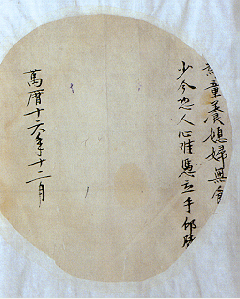 W
WTongyangxi, also known as Shim-pua marriage in Min Nan dialects, was a tradition of arranged marriage dating back to pre-modern China, in which a family would adopt a pre-adolescent daughter as a future bride for one of their pre-adolescent sons, and the children would be raised together.
 W
WWhite Day is on March 14, one month after Valentine's Day, when people give reciprocal gifts to those who gave them gifts received on Valentine's Day. It began in Japan in 1978; since then, its observance has spread to several other Asian nations.
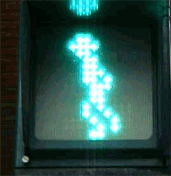 W
WXiaolüren can refer to any pedestrian traffic lights, but most often the animated traffic light system originally from Republic of China. It was first implemented in Taipei City between Songshou Road and Songzhi Road, in 1999, and came into widespread use around the country and almost replaced incandescent, static and non-animated pedestrian traffic lights within a few years.
 W
WPriority seats have been designated in public transport vehicles by certain transport operators to allow elderly, disabled, pregnant women and the injured to ride public transport with an equal degree of access and comfort as other people. Priority seats can be found on various public transportation, including the mass transit railways, buses, minibuses, and trams. The slogan "Please offer your seat to anyone in need" is often displayed beside the seat. The elderly, disabled, pregnant, and injured have priority to take these seats. In most cases, there is no regulation to restrict the use of priority seats, but people are expected to offer their seats to those in need.